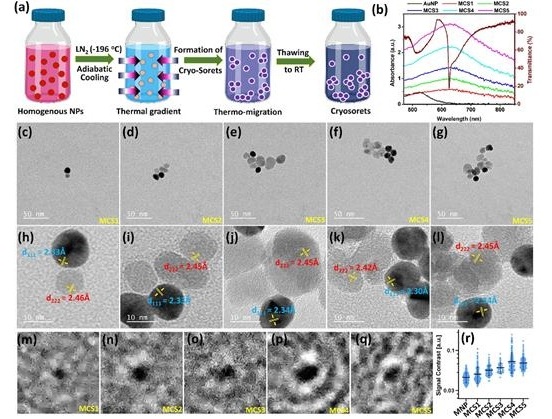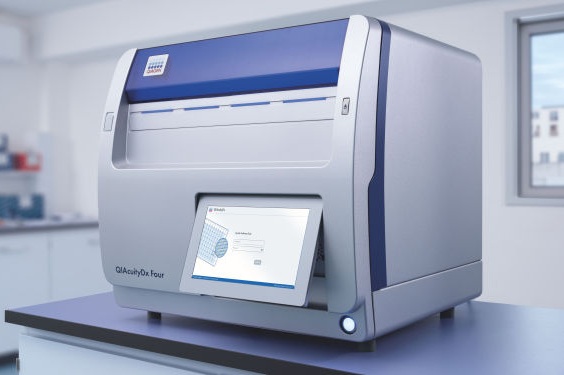Immune Cell Biomarker Predicts Response to Treatment with Checkpoint Inhibitor Drugs
|
By LabMedica International staff writers Posted on 06 Sep 2021 |
![Image: Scanning electron micrograph of a human T-cell from the immune system of a healthy donor (Photo courtesy [U.S.] National Institute of Allergy and Infectious Diseases) Image: Scanning electron micrograph of a human T-cell from the immune system of a healthy donor (Photo courtesy [U.S.] National Institute of Allergy and Infectious Diseases)](https://globetechcdn.com/mobile_labmedica/images/stories/articles/article_images/2021-09-06/GMS-070B.jpg)
Image: Scanning electron micrograph of a human T-cell from the immune system of a healthy donor (Photo courtesy [U.S.] National Institute of Allergy and Infectious Diseases)
A molecular signature based on an immune cell surface protein is a potential route toward determining a cancer patient’s response to treatment with checkpoint inhibitor drugs.
Immune checkpoint inhibitors are drugs that can aid the immune system of some cancer patients to effectively attack their tumors, but identifying those patients for whom they will be effective is still a challenge.
In this regard, investigators at Memorial Sloan Kettering Cancer Center (New York, NY, USA) designed a study to identify blood-based biomarkers linked to the clinical outcome of immune checkpoint blockade (ICB)-treated patients. For this study, they performed immune profiling of 188 ICB-treated patients with melanoma using multiparametric flow cytometry to characterize immune cells in pretreatment peripheral blood. An independent cohort of 94 ICB-treated patients with urothelial carcinoma was used for validation.
The results revealed three distinct immune phenotypes (immunotypes), defined in part by the presence of a LAG-3+CD8+ T-cell population. LAG-3 (lymphocyte-activation gene 3) is a cell surface protein with diverse biologic effects on T-cell function, including an inhibitory effect on immune responses. It is an immune checkpoint receptor and as such is the target of various drug development programs by pharmaceutical companies seeking to develop new treatments for cancer and autoimmune disorders. In soluble form it is also being developed as a cancer drug in its own right.
Patients with melanoma with a positive LAG immunotype had poorer outcomes after ICB with a median survival of 22.2 months compared to 75.8 months for those with the LAG negative immunotype. An independent cohort of 94 ICB-treated patients with urothelial carcinoma was used for validation where a LAG positive immunotype was significantly associated with response, survival, and progression-free survival.
"If I told you that you could have a simple blood draw and in a couple of days have information to make a decision about what therapy you get, I would say it does not get much better than that," said senior author Dr. Margaret K. Callahan, researcher in medical oncology at Memorial Sloan Kettering Cancer Center. "Of course, there is still much work to be done before these research findings can be applied to patients in the clinic, but we are really enthusiastic about the potential to apply these findings. What I am most excited about is prospectively evaluating the idea that not only can we identify patients who will not do as well with the traditional therapies but that we can also give these patients other treatments that might help them, based on our knowledge of what LAG-3 is doing biologically."
The LAG-3 study was published in the August 25, 2021, online edition of the journal Science Translational Medicine.
Related Links:
Memorial Sloan Kettering Cancer Center
Immune checkpoint inhibitors are drugs that can aid the immune system of some cancer patients to effectively attack their tumors, but identifying those patients for whom they will be effective is still a challenge.
In this regard, investigators at Memorial Sloan Kettering Cancer Center (New York, NY, USA) designed a study to identify blood-based biomarkers linked to the clinical outcome of immune checkpoint blockade (ICB)-treated patients. For this study, they performed immune profiling of 188 ICB-treated patients with melanoma using multiparametric flow cytometry to characterize immune cells in pretreatment peripheral blood. An independent cohort of 94 ICB-treated patients with urothelial carcinoma was used for validation.
The results revealed three distinct immune phenotypes (immunotypes), defined in part by the presence of a LAG-3+CD8+ T-cell population. LAG-3 (lymphocyte-activation gene 3) is a cell surface protein with diverse biologic effects on T-cell function, including an inhibitory effect on immune responses. It is an immune checkpoint receptor and as such is the target of various drug development programs by pharmaceutical companies seeking to develop new treatments for cancer and autoimmune disorders. In soluble form it is also being developed as a cancer drug in its own right.
Patients with melanoma with a positive LAG immunotype had poorer outcomes after ICB with a median survival of 22.2 months compared to 75.8 months for those with the LAG negative immunotype. An independent cohort of 94 ICB-treated patients with urothelial carcinoma was used for validation where a LAG positive immunotype was significantly associated with response, survival, and progression-free survival.
"If I told you that you could have a simple blood draw and in a couple of days have information to make a decision about what therapy you get, I would say it does not get much better than that," said senior author Dr. Margaret K. Callahan, researcher in medical oncology at Memorial Sloan Kettering Cancer Center. "Of course, there is still much work to be done before these research findings can be applied to patients in the clinic, but we are really enthusiastic about the potential to apply these findings. What I am most excited about is prospectively evaluating the idea that not only can we identify patients who will not do as well with the traditional therapies but that we can also give these patients other treatments that might help them, based on our knowledge of what LAG-3 is doing biologically."
The LAG-3 study was published in the August 25, 2021, online edition of the journal Science Translational Medicine.
Related Links:
Memorial Sloan Kettering Cancer Center
Latest Molecular Diagnostics News
- RNA-Seq Based Diagnostic Test Enhances Diagnostic Accuracy of Pediatric Leukemia
- New Technique for Measuring Acidic Glycan in Blood Simplifies Schizophrenia Diagnosis
- Injury Molecular Fingerprint Enables Real-Time Diagnostics for On-Site Treatment
- Blood Test Could Predict Likelihood of Breast Cancer Spreading to The Bone
- New Infectious Disease Analytics Platform Speeds Up Clinical Decision-Making at POC
- Genetic Test Could Predict Poor Outcomes in Lung Transplant Patients
- Breakthrough Blood Test Enables Early Pancreatic Cancer Detection
- Genomic Testing in NICU Reduces Missed Diagnoses
- New Genetic Test Improves Diabetes Prediction and Classification
- New Blood Test for Leukemia Risk Detection Could Replace Bone Marrow Sampling
- Blood Test Detects Preeclampsia Risk Months Before Symptoms Appear
- mNGS CSF Test Outperforms Traditional Microbiological Testing for Infectious Diseases
- Point-Of-Care Test to Transform Early-Stage Cervical Cancer Diagnosis
- PET/ctDNA-Guided Approach Helps Determine Lymphoma Treatment
- Next-Generation 'Agnostic Diagnostics' to Detect Respiratory Viruses at POC
- First-Ever Test of Cure for Chagas Disease Determines Treatment Effectiveness
Channels
Clinical Chemistry
view channel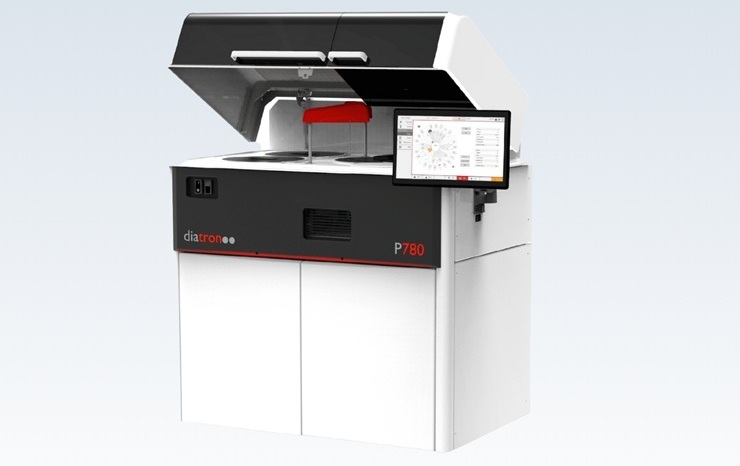
New Clinical Chemistry Analyzer Designed to Meet Growing Demands of Modern Labs
A new clinical chemistry analyzer is designed to provide outstanding performance and maximum efficiency, without compromising affordability, to meet the growing demands of modern laboratories.... Read more
New Reference Measurement Procedure Standardizes Nucleic Acid Amplification Test Results
Nucleic acid amplification tests (NAATs) play a key role in diagnosing a wide range of infectious diseases. These tests are generally known for their high sensitivity and specificity, and they can be developed... Read moreHematology
view channel
Disposable Cartridge-Based Test Delivers Rapid and Accurate CBC Results
Complete Blood Count (CBC) is one of the most commonly ordered lab tests, crucial for diagnosing diseases, monitoring therapies, and conducting routine health screenings. However, more than 90% of physician... Read more
First Point-of-Care Heparin Monitoring Test Provides Results in Under 15 Minutes
Heparin dosing requires careful management to avoid both bleeding and clotting complications. In high-risk situations like extracorporeal membrane oxygenation (ECMO), mortality rates can reach about 50%,... Read moreImmunology
view channel
Blood Test Detects Organ Rejection in Heart Transplant Patients
Following a heart transplant, patients are required to undergo surgical biopsies so that physicians can assess the possibility of organ rejection. Rejection happens when the recipient’s immune system identifies... Read more
Liquid Biopsy Approach to Transform Diagnosis, Monitoring and Treatment of Lung Cancer
Lung cancer continues to be a major contributor to cancer-related deaths globally, with its biological complexity and diverse regulatory processes making diagnosis and treatment particularly difficult.... Read more
Computational Tool Exposes Hidden Cancer DNA Changes Influencing Treatment Resistance
Structural changes in tumor DNA are among the most damaging genetic alterations in cancer, yet they often go undetected, particularly when tissue samples are degraded or of low quality. These hidden genomic... Read moreMicrobiology
view channel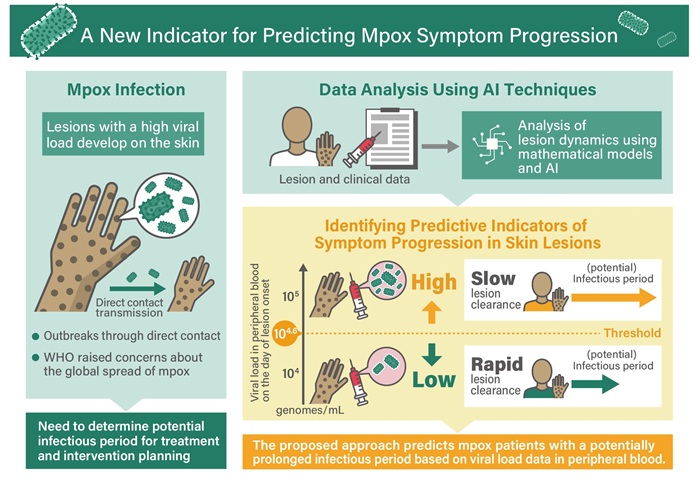
Viral Load Tests Can Help Predict Mpox Severity
Mpox is a viral infection that causes flu-like symptoms and a characteristic rash, which evolves significantly over time and varies between patients. The disease spreads mainly through direct contact with... Read more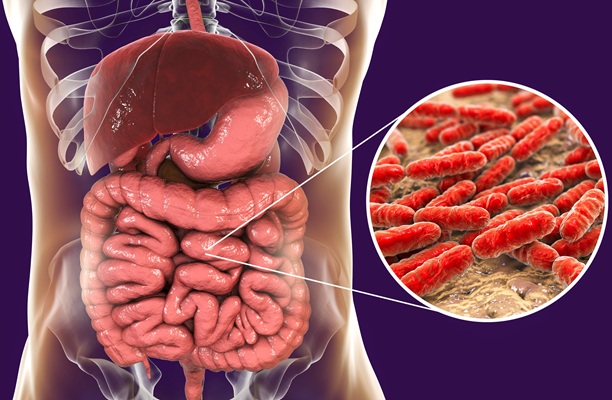
Gut Microbiota Analysis Enables Early and Non-Invasive Detection of Gestational Diabetes
Gestational diabetes mellitus is a common metabolic disorder marked by abnormal glucose metabolism during pregnancy, typically emerging in the mid to late stages. It significantly heightens the risk of... Read morePathology
view channelAI Performs Virtual Tissue Staining at Super-Resolution
Conventional histopathology, essential for diagnosing various diseases, typically involves chemically staining tissue samples to reveal cellular structures under a microscope. This process, known as “histochemical... Read moreAI-Driven Preliminary Testing for Pancreatic Cancer Enhances Prognosis
Pancreatic cancer poses a major global health threat due to its high mortality rate, with 467,409 deaths and 510,992 new cases reported worldwide in 2022. Often referred to as the "king" of all cancers,... Read more
Cancer Chip Accurately Predicts Patient-Specific Chemotherapy Response
Esophageal adenocarcinoma (EAC), one of the two primary types of esophageal cancer, ranks as the sixth leading cause of cancer-related deaths worldwide and currently lacks effective targeted therapies.... Read more
Clinical AI Solution for Automatic Breast Cancer Grading Improves Diagnostic Accuracy
Labs that use traditional image analysis methods often suffer from bottlenecks and delays. By digitizing their pathology practices, labs can streamline their work, allowing them to take on larger caseloads... Read moreTechnology
view channel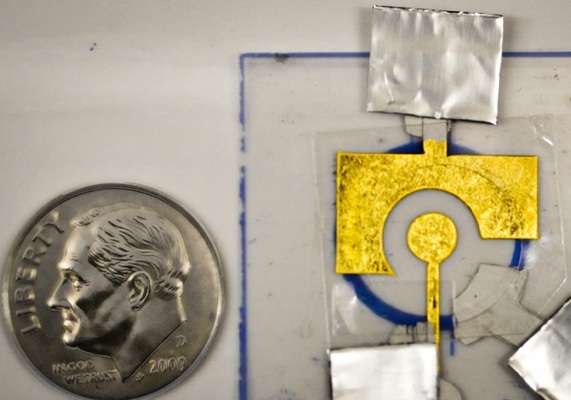
Inexpensive DNA Coated Electrode Paves Way for Disposable Diagnostics
Many people around the world still lack access to affordable, easy-to-use diagnostics for diseases like cancer, HIV, and influenza. Conventional sensors, while accurate, often rely on expensive equipment... Read more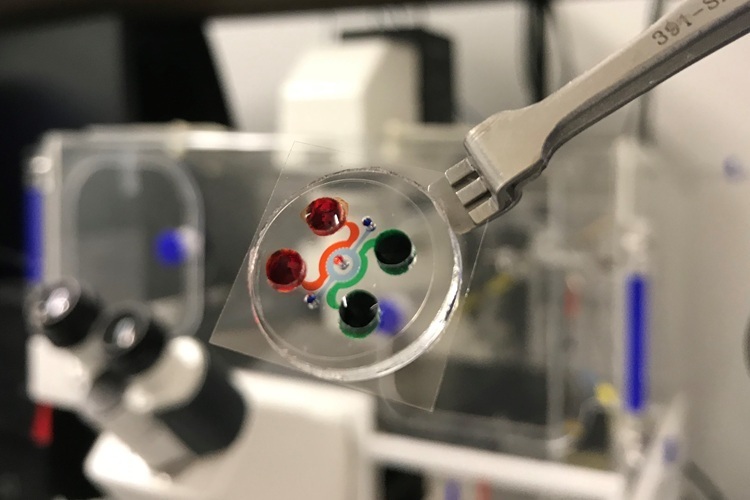
New Miniature Device to Transform Testing of Blood Cancer Treatments
Chimeric antigen receptor (CAR) T cell therapy has emerged as a groundbreaking treatment for blood cancers like leukemia, offering hope to patients when other treatments fail. However, despite its promise,... Read moreIndustry
view channel
Lunit and Microsoft Collaborate to Advance AI-Driven Cancer Diagnosis
Lunit (Seoul, South Korea) and Microsoft (Redmond, WA, USA) have entered into a collaboration to accelerate the delivery of artificial intelligence (AI)-powered healthcare solutions. In conjunction with... Read more






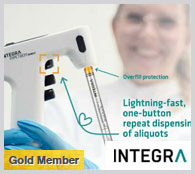
 Extraction or Purification Kit.jpg)











